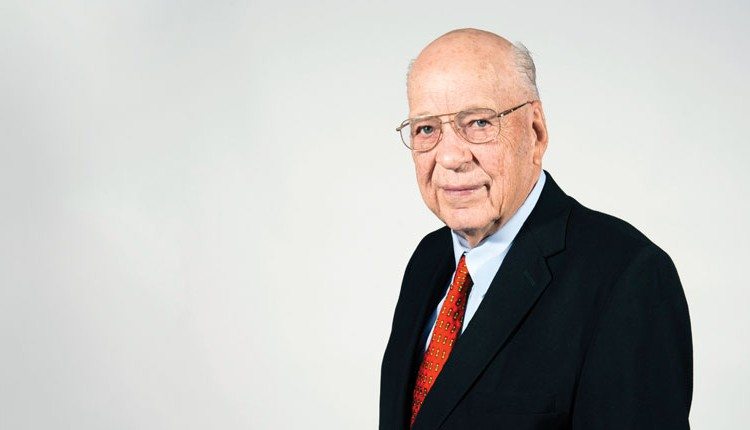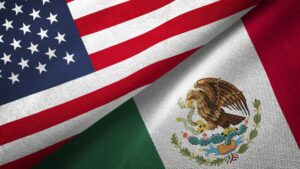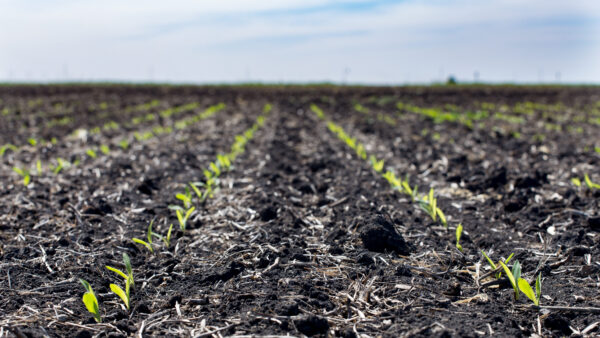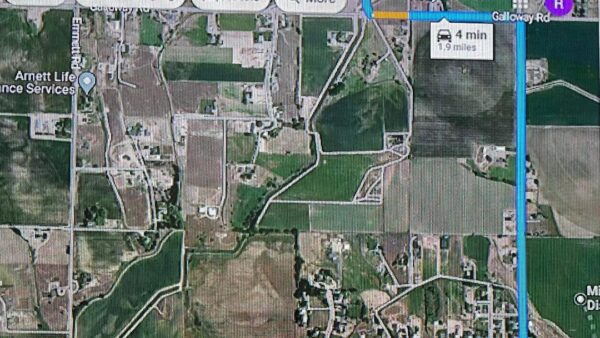Committed. No other words are needed to define his service to the seed industry and agriculture, in general. Here, Newlin is recognized as part of Seed World’s Founders Series in celebration of its 100-year anniversary.
Senior vice president of Pioneer Hi-Bred International, Inc. Champion for and Chair of the U.S. Grains Council. President of the American Seed Trade Association. President of the Board of Regents, State of Iowa. Iowa State University Foundation Governor. Regardless of the title given to Owen Newlin, there’s one characteristic you’re sure to associate with him — committed.
At the age of 87, this tall-statured man with a friendly smile can be found in meetings relating to the seed industry, agriculture and fundraising efforts around the country. He stays up on the issues and works to keeps his mind sharp.
Through the years, Newlin has developed the reputation as a highly respected leader in the seed industry, a philanthropic pioneer and a champion for research and higher education.
The son of Jay Newlin, one of the original founders of Pioneer, he basically grew up on the Pioneer farm in Johnston, Iowa. Not far from there, he earned his bachelor’s and masters’ in agronomy from Iowa State University. Having peaked his interest in plant sciences, Newlin decided to continue his education and pursue a doctoral degree in plant breeding and genetics from the University of Minnesota.
During his days of undergraduate and graduate work, Newlin looked up to George F. Sprague and Louis M. Thompson at Iowa State University and E.H. Rinke at the University of Minnesota. All were mentors and stimulators, Newlin says.
“I learned a lot about genetics and corn breeding from them,” he adds. “We didn’t have biotech in those days. It was difficult to make progress, but progress was made. During the latter part of that time, we were increasing the average corn yield per acre by 1.5 to 2 percent per year.”
“Owen is a tireless supporter of ASTA’s activities and is always volunteering to assist the ASTA team when we need extra horsepower.”
— Andy LaVigne
After completing his doctorate in 1955, Newlin made his start in the seed industry. As a production research assistant, Pioneer Hi-Bred International had charged him with enhancing seed quality and yield.
During the late 1950s, Newlin first got involved with the American Seed Trade Association (ASTA) and he started to build his network of seed industry peers. Since then, Newlin says the association and its membership have been through a great deal of change. “There’s been a lot of consolidation, but that’s inevitable,” he explains. “It happens in all industries.”
In fact, Newlin says it has happened slower in the seed industry than in others.
After several promotions, Newlin became president of Pioneer’s central division in 1967. He was instrumental in the development of Pioneer’s unparalleled agronomy service, and wanted to transfer the maximum genetic potential of hybrid corn to farmers.
“At Pioneer, we believed research and technology were key, so we put a lot of resources in those areas,” he shares. “But you also had to have the other pieces — agronomy service, sales and marketing, production as well as finance.”
In 1970, Pioneer asked Newlin to serve as its representative to the U.S. Grains Council (USGC). Working very closely with the National Corn Growers Association, Iowa Corn Growers Association and the USGC, Newlin pushed for yield advances and opportunities to help farmers better understand the environment they were operating in.
Through the years, he led several groups of farmers on trade missions through the USGC, whose mission is to develop new export markets for grain corn and grain sorghum.
It’s very important to get farmers to understand the importance of international trade, Newlin says, explaining that after going on these missions, farmers would come back as advocates for exporting grain corn and grain sorghum.
Today, Victor Miller, a farmer involved with the USGC describes Newlin as a “humble visionary.”
“Owen is one of those rare people who can see what needs to be done,” Miller says. “He can look at a situation and analyze it for what is there and see what needs to change.”
Not only was Newlin’s leadership sought by those involved with the USGC, but he was instrumental in helping establish the checkoff programs in eight key corn-producing states and beyond. His work helped producers have a more consistent voice — a need in the 70s and 80s.
In 1986, he was elected senior vice president of Pioneer Hi-Bred International, where he would remain until stepping down and retiring in 1993, and retiring from the board of directors in 1998.
“Working in the seed industry has been very rewarding, very challenging and extremely interesting,” Newlin says. “There’s a great deal of opportunity here for those who are interested.
“The scientific knowledge required is very demanding but very rewarding. You see this in enrollment numbers across colleges of agriculture throughout the United States. One of the important areas is microbiology and genetics.”
Looking back, Newlin says “Technology drives everything, even when we were moving into hybrids and single crosses, and it’s even more so today. The insertion of traits into germplasm through biotechnology has transformed the industry.”
When looking at the future of the seed industry, Newlin believes one of the biggest challenges it must overcome is some people’s lack of acceptance of genetically-modified organisms.
“Eventually, it will come,” Newlin says, noting that there were also very negative attitudes when hybrid corn was introduced. “We need more enhanced and improved communications about the safety and benefits of GMOs, and on nutrition — that might help.”
But he reminds us that the adoption of GMOs by farmers has moved much faster than that of hybrid corn when it was first launched.
There’s no doubt in Newlin’s mind that the seed industry is dominated by technological advancements.
In talking with early-career individuals today, Newlin encourages them to get involved with the ASTA and its activities. He says one can learn a great deal about the importance of intellectual property protection and the improved movement of seed between countries.
Today, Newlin keeps up on the issues through his continued work at ASTA and the USGC. Active in these organizations for more than 45 years, Newlin currently serves as ASTA’s delegate to the USGC. Under Newlin’s leadership, ASTA has brought more than 20 seed trade representatives from across the industry into the council. And he is responsible for bringing in hundreds of thousands of dollars to support various seed industry events and initiatives.
“Owen is a tireless supporter of ASTA’s activities and is always volunteering to assist the ASTA team when we need extra horsepower to garner support for our activities,” says Andy LaVigne, ASTA president and CEO. “He is never shy to ask on our behalf and very few people can tell him no.”
LaVigne says he first met Newlin at an ASTA board meeting in Amelia Island, Fla., before he had officially started working for the association. “Jim Tobin introduced us and while I didn’t know Owen from Adam, he shook my hand, looked me in the eye and said ‘anything I can do for you, don’t hesitate to call me.’
“Jim later told me about Owen’s background and the expertise he brought to the seed industry. And to today, Owen has always been there when I’ve needed his help and guidance.”
LaVigne is not the only one with stories such as this. Many in the industry have a friend in Owen Newlin.
He remains committed to the cause and is a true champion for the seed industry.












